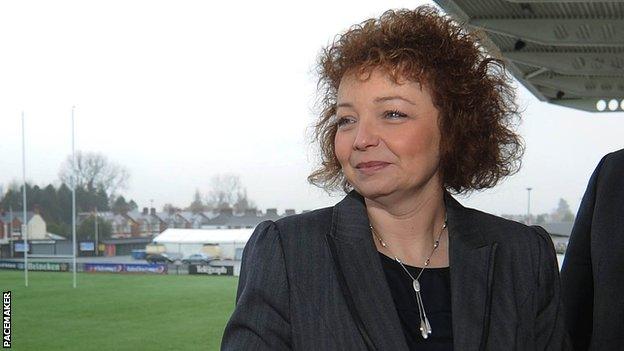Ulster GAA sets upper limit of 400 spectators allowed to attend matches in Northern Ireland
- Published
Up to 400 spectators will be allowed to attend some GAA matches in Northern Ireland following updated guidelines from the Stormont Executive.
The Assembly said that, from Friday, supporters can attend outdoor sports events "where the operator can control access and ensure adherence to social distancing".
Ulster GAA has advised that 400 people, including essential match personnel, can attend a ground that has perimeter fencing with viewing access on all four sides.
In other grounds, the number of people attending a game should be limited to a maximum of 250, though in some cases, such as grounds with no perimeter fencing, the number might be lower.
Fixtures in the Republic of Ireland are allowed up to 200 people, which includes players, coaching staff, media and stewards.
"There is an onus on both the spectator and the organisers to ensure that all social distancing requirements are adhered to. This is currently two metres," the Ulster GAA said in a statement on Thursday evening.
"In line with GAA protocols, supporters are strongly advised to wear face coverings at games. Patrons are also encouraged to bring their own hand sanitiser.
"Clubs are reminded that dressing rooms and indoor facilities remain closed. It is also recommended that dugouts should not be used. If being used they can only be done so in accordance with the two metres social distancing regulations."

Stormont Communities Minister Carál Ni Chuilin announced that small numbers of spectators will be allowed at sporting events in Northern Ireland from Friday
Competitive GAA action resumed last weekend for the first time since March as club matches started again, with a number of clubs having since suspended all activities because players tested positive for Covid-19.
"Permitting some spectators is an important step for those who spend their leisure time watching sport whether that be at an underage game or a professional event," said the Stormont Communities Minister Carál Ni Chuilin
"It is important that we see a safe and sensible approach from everyone and that we realise that numbers and the arrangements for spectators will be very different for the foreseeable future."